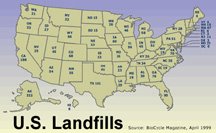3M says chemical in water harmless
The St. Paul Pioneer Press
WOODBURY, MN - 3M Co. has a message for Washington and Dakota counties: Stop worrying about your water.
The most extensive tests undertaken on a chemical recently found in drinking water in those areas show that trace amounts are harmless to humans, company officials said Tuesday.
"This reassures me tremendously," said Dr. Larry Zobel, 3M's corporate medical director.
The tests examined the effect of PFBA, or perfluorobutanoic acid, a chemical used to make photographic film that is believed to have leaked into groundwater from sites in Woodbury and Lake Elmo.
The study found that PFBA causes enlarged livers and lowered cholesterol in rats when the test animals were exposed to extremely high doses for 28 days.
But scientists gave the rats less and less of the compound to determine the threshold level that did not cause harm — and found it to be 420,000 times higher than the level of PFBA in the drinking water of Woodbury, the biggest city where it has been detected.
Zobel said a person would have to drink 500,000 glasses of water per day to reach the threshhold indicated by the tests.
The company released the test results Tuesday afternoon. Earlier in the day, officials assured members of the Minnesota House Environment and Natural Resources Finance Committee that PFBA posed no harm — and fielded questions from lawmakers.
"If you had a daughter living in St. Paul Park, would you tell her to use an (activated carbon) filter or tap water?" Rep. Denny McNamara, R-Hastings, asked a panel of 3M executives.
"I have absolutely no concern about the public drinking water," said Dr. Katherine Reed, 3M vice president for environmental, health and safety operations.
Some lawmakers were not reassured — and verbally sparred with executives of the Maplewood-based company.
"Why not do what's right and put (affected residents) on bottled water or on filtration systems?" asked Rep. Karla Bigham, DFL-Cottage Grove.
Countered Reed: "The truth is, the water is safe to drink now."
Bigham is a co-sponsor of a bill that would cut the level of PFBA considered acceptable for Minnesota drinking water from its current 1 part per billion (ppb) limit in half, to 0.5 ppb.
"If the Department of Health is not going to protect, in my opinion, residents, then we should do something," Bigham said. "This is not OK. The sit-and-wait approach is not OK."
Bingham said some areas, such as St. Paul Park and Cottage Grove, had levels twice as high as the 1 ppb guideline — which she called twice as dangerous.
Shouldn't it be 3M's responsibility, she asked, to provide residents with bottled water?
John Linc Stine, director of the Health Department's Environmental Health Division, said the concentration guideline was misleading: A 1 ppb level of PFBA is considered acceptable over a lifetime of drinking it, he said — but twice the amount might well be acceptable as well.
"This is not making me feel better," Bigham said. "No level is acceptable, in my opinion."
Rep. Marsha Swails, DFL-Woodbury, said a woman in her district wanted to install a filter to remove the PFBA from her well water and was told it would cost $1,000 — which she could not afford.
"What do I tell my constituents?" Swails asked.
"It's probably not the best way to spend your money," Stine responded.
Concerns over 3M chemicals in groundwater began in 2004, when two kinds of chemicals called PFCs, or perfluorochemicals, were detected in Oakdale and Lake Elmo. Those PFCs were used in making Teflon and Scotchgard stain repellent; PFBA is a member of the same group of chemicals.
3M said the chemicals weren't harmful. But the U.S. Environmental Protection Agency said some PFCs are "likely carcinogens" in high doses in laboratory animals.
3M paid $2.5 million for a filter system for Oakdale city water and subsidized the cost of extending city water to some homes in Lake Elmo.
The discovery of PFBA was announced in January. Not much is known about the chemical, but it is believed to be less harmful than other PFCs because it doesn't accumulate in the body as quickly.
3M had conducted a five-day study of PFBA on rats before the chemical was found in groundwater. That study had similar results as those released Tuesday; a more thorough, 90-day study will begin in April, Zobel said.
State officials have never said PFBA was harmless, but they have said it poses no immediate health threat. The longer-term effects of PFBA and other PFCs are being studied by 3M and the EPA.
View related articles:














<< Home